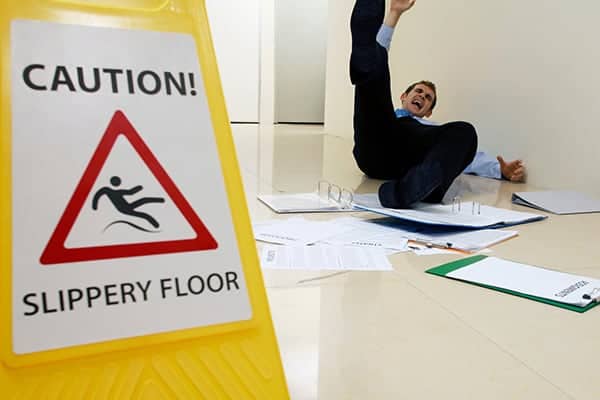
Support for the self-employed and small businesses through the Coronavirus pandemic
Posted on 23rd March 2020 by Phil Ainley
The rapidly moving landscape created by the COVID-19 pandemic is making life extremely tough for a lot of people. There are ways that the self-employed and small businesses can seek support until things return to normal.
Statutory Self-Employment Pay – details correct as of 23.03.2020
As part of the Coronavirus Bill which was passed in the House of Commons on March 23rd, statutory self-employment pay was a key point that will alleviate the fears and anxiety of many self-employed professionals.
The details below are verbatim from the Coronavirus Bill to retain accuracy of the information.
Statutory self-employment pay
(1) The Secretary of State must, by regulations, introduce a scheme of Statutory Self-Employment Pay.
(2) The scheme must make provision for payments to be made out of public funds to individuals who are
(a) Self-employed, or
(b) freelancers.
(3) The payments to be made in subsection (2) are to be set so that the net monthly earnings of an individual specified in subsection (2) do not fall below-
(i) 80 per cent of their monthly net earnings, averaged over the last three years, or
(ii) £2,917
Whichever is lower.
(4) No payment to be made under subsection (2) shall exceed £2,917 per month.
(5) A statutory instrument containing regulations under this section is subject to annulment in pursuance of a resolution of either House of Parliament.
Member’s explanatory statement
The purpose of this amendment is to make the Government ‘top up’ self-employed workers’ earnings to the lower of 80% of their net monthly earnings averaged over three years, or £2,917 a month.
Support for self-employed workers during the Coronavirus pandemic
If you are ineligible for Statutory Sick Pay because you are self-employed, or because you earn less than the Lower Earnings Limit of £118.00 per week, the Government is making it easier to claim for Universal Credit or Contributory Employment and Support Allowance during the COVID-19 outbreak.
The Minimum Income Floor for Universal Credit is temporarily relaxed for those suffering with COVID-19 or are self-isolating in-line with the Government’s advice. You will not be required to attend a Job Centre if you have been advised to self-isolate.
To apply for this support click here.
Employment Support Allowance (ESA)
If you are eligible and ill and you are self-isolating you will be able to claim Employment and Support Allowance of £73.10 per week from day one. You need to be over 25 to receive ESA.
Looking after yourself
As a business owner or freelancer, you are your businesses greatest asset and looking after your mental health will be key to helping you navigate your business through this tricky time. The Mental Health Foundation have a great article here about looking after yourself during the coronavirus outbreak.
Cash grants for small businesses
Grants of £25,000 are being made available to retail, hospitality and leisure businesses who have small premises with a rateable value of between £15,000 and £51,000.
Restaurants and pubs are being allowed to offer takeaways without planning application, with the aim of helping them to keep revenue coming in while their establishments are empty, or even closed.
Businesses currently receiving Small Business Rate Relief (SBRR) or Rural Rate Relief are being offered a £10,000 one-off grant to help them through the disruptions caused by the Coronavirus pandemic.
Cash grants will not be available until early April and will be run via your local authority. Your local authority will contact you rather than having to apply for the grant yourself.
See Gov.uk here for information.
Self-assessment deferral
July’s self-assessment payments on account will be deferred until January 2021. This is available to anyone who is self-employed, but the exact criteria is yet to be confirmed. This is not a grant therefore you will need to make full payment in January 2021.
VAT deferral
VAT payments due on March 20th and June 30th can be deferred to April 2021. This is available to all businesses and no application is required. This is not a grant therefore full payment must be made in April 2021.
Coronavirus Business Interruption Scheme
This scheme, delivered through the British Business Bank, is due to launch within the next few weeks and will be a loan scheme set up for businesses with a turnover of less than £41 million. Those businesses falling into that category will be able to apply for a loan of up to £5 million.
The Government will encourage lenders to guarantee up to 80% of any losses and there will be no loan charges applied.
Business Rates Reduction for retail, hospitality and leisure businesses
The Government is temporarily cutting business rates to 0% for all retail, hospitality and leisure businesses.
Your local authority will send eligible businesses an updated bill. If your business doesn’t fall into this category, you can apply to your local authority to receive the discount.
Statutory Sick Pay full refund due to COVID-19
SME’s with fewer than 250 employees (on the 28th of February 2020) will receive a full refund of 14 days statutory sick pay for each employee off sick with COVID-19. The eligible period will begin the day after the Statutory Sick Pay regulations are extended.
It is important for businesses to keep a record of all absences and Statutory Sick Pay payments due to the Coronavirus.
Mortgage Payment Holidays
Mortgage lenders have agreed to offer payment holidays to customers in financial difficulty due to the Coronavirus pandemic. This could give those in trouble 3 months grace from paying for their mortgage. If you require this service you will need to contact your mortgage lender directly.
More time to pay your tax bill
Businesses with outstanding tax bills who are in financial distress can access HMRC’s Time to Pay service. A helpline has been set up on 0800 0159 559 for businesses having difficulty paying their tax bill due to the Coronavirus pandemic.
Decisions as to how much extra time is allotted to pay outstanding tax bills will be made on a case-by-case basis.
£500 million Hardship Fund
Local authorities will have access to £500 million Hardship Fund to support vulnerable people and households, with the aim of providing more council tax relief through Local Council Tax Support schemes.
Information as per guidelines as of 23rd March 2020
You can download an in-depth pdf of the ‘Coronavirus Financial Support for the Self-Employed’ here
Sources:
Bill documents – Coronavirus Bill 2019-21
Related Articles:
What can you do when your freelance work dries up?
Maintaining your productivity while working from home

